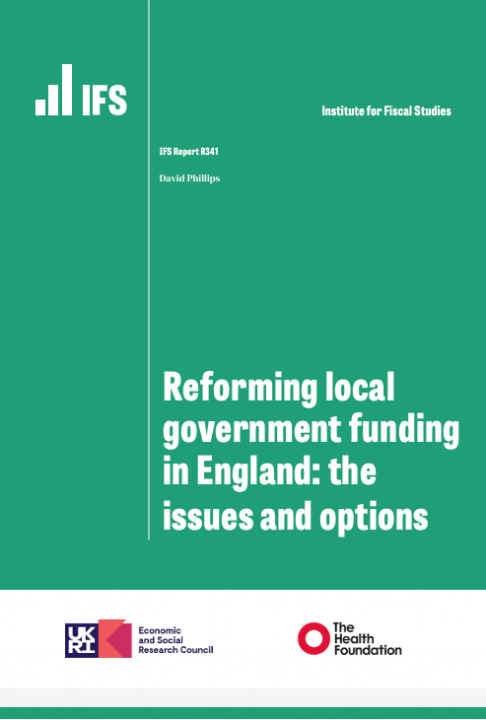The Institute for Fiscal Studies (IFS) has released a comprehensive report titled "Reforming Local Government Funding in England: The Issues and Options," which delves into the complexities and challenges of the current local government finance system in England. The report, authored by David Phillips, highlights the pressing need for reform and explores various options to address the systemic issues.
Key Issues with Current Funding
The report identifies several critical problems with the existing funding system for English councils:
- Arbitrary Funding Allocations: The current system lacks a coherent method for distributing funds, leading to arbitrary and often unfair allocations. This has resulted in significant geographical inequalities in funding, which do not reflect the actual needs of different areas.
- Short-Term Financial Settlements: Councils often receive only one-year financial settlements from the central government, making long-term planning difficult. This uncertainty hampers efficient service delivery and investment.
- Limited Revenue-Raising Powers: Compared to local governments in other high-income countries, English councils have limited powers to raise revenue. They primarily rely on council tax and business rates, with strict limitations on increasing these taxes.
- Weak Financial Incentives: The current system does not provide strong enough financial incentives for councils to improve local socio-economic conditions. The incentives that do exist are mainly tied to property development rather than broader economic growth.
- Confused Accountability: The overlapping responsibilities of local and central government create confusion and dilute accountability. Frequent changes in duties and funding arrangements exacerbate this issue.
Proposed Reforms
The IFS report outlines several potential reforms to address these issues:
- Updated Funding Allocation System: A new system that accurately reflects the spending needs and revenue-raising capacities of different councils is essential. This system should be transparent and flexible, allowing for adjustments based on changing local circumstances.
- Multi-Year Financial Settlements: Providing councils with multi-year funding settlements would enhance their ability to plan and deliver services efficiently. This approach would offer greater financial stability and predictability.
- Enhanced Revenue-Raising Powers: Expanding the range of taxes that councils can levy, such as local income taxes or tourism taxes, would provide them with more financial autonomy. This would also align with practices in other high-income countries.
- Stronger Financial Incentives: Introducing incentives that reward councils for improving local socio-economic outcomes, not just property development, would encourage broader economic growth and development.
- Clearer Accountability Structures: Simplifying the governance structure and clearly delineating the responsibilities of local and central government would improve accountability. This could involve reducing the number of tiers of local government and ensuring consistent responsibilities across regions.

Institutional and Structural Changes
The report also suggests institutional reforms to strengthen the status of local government:
- Independent Advisory Body: Establishing an independent body to advise on funding levels and allocations could enhance transparency and reduce political manipulation of funding decisions.
- Legal Framework for Funding Adequacy: Implementing a legal requirement for the central government to ensure sufficient funding for local councils to meet their statutory duties would provide a more stable financial foundation.
- Reduction of Ring-Fenced and Competitive Funding Pots: Simplifying the funding landscape by reducing the number of small, ring-fenced, and competitive funding pots would allow councils more flexibility to address local priorities.
The IFS report underscores the urgent need for a comprehensive overhaul of the local government finance system in England. on the future direction of local government funding.
You can read the report in full here
Image credits: IFS and iStock



















